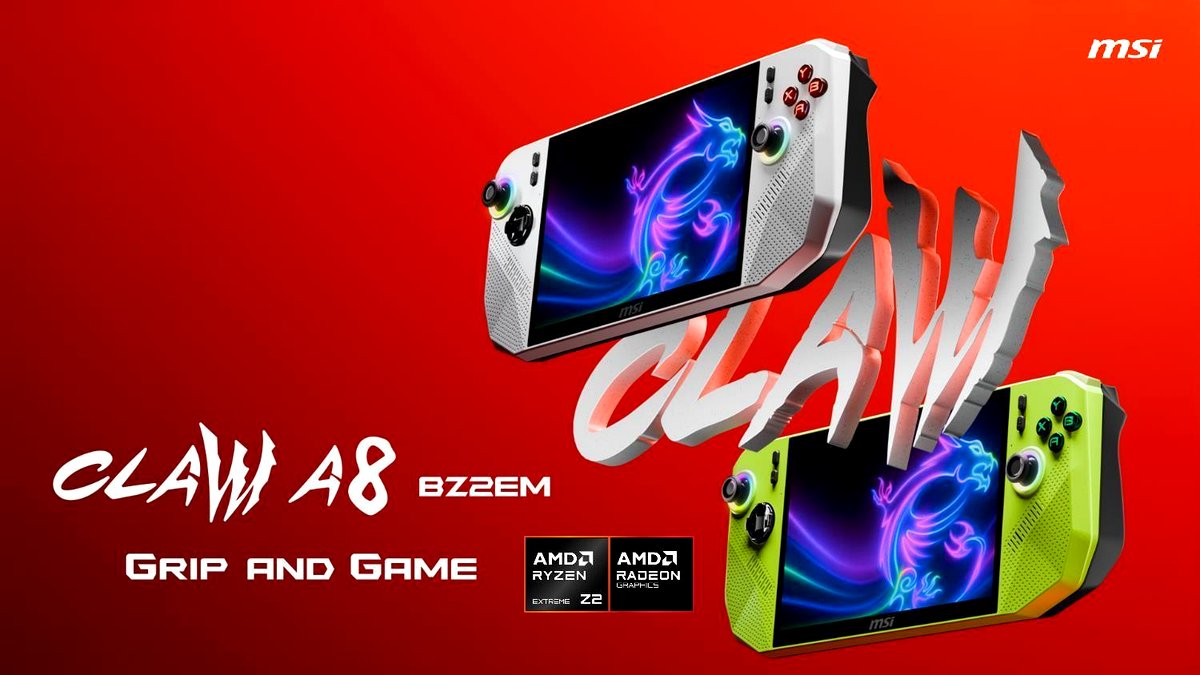Intel's Strategic Gambit in the Handheld Market
Intel's collaboration with Chinese gaming giant Tencent on the Sunday Dragon 3D One represents a calculated strategic response to AMD's increasing dominance in the x86 handheld gaming market. While AMD-powered devices like the Steam Deck, ROG Ally, and MSI Claw have captured significant market share, Intel's partnership with one of China's largest gaming companies signals an ambitious attempt to differentiate through innovative display technology rather than raw performance metrics.
The timing of this showcase at CES 2025 is particularly revealing. Intel's Lunar Lake architecture, specifically the Core Ultra 7 258V processor powering the Sunday Dragon, positions Intel's integrated graphics capabilities against AMD's well-established RDNA architecture in handheld gaming devices. This collaboration leverages Tencent's deep understanding of the Chinese gaming market while providing Intel with a high-profile platform to demonstrate their handheld gaming ambitions.
Technological Innovation Through 3D Display Architecture
The Sunday Dragon 3D One's most distinctive feature - its "naked-eye 3D" display technology - represents a fundamental departure from the display strategies employed by existing handheld gaming PCs. While competitors focus on high refresh rates and resolution improvements, Intel and Tencent have chosen to explore stereoscopic 3D without requiring specialized glasses, potentially creating an entirely new category within handheld gaming.
The device's massive 11-inch display significantly exceeds the screen sizes of established competitors. The Steam Deck operates with a 7-inch display, the ROG Ally features a 7-inch screen, and even the larger MSI Claw variants typically max out at 8 inches. This substantial size increase suggests the Sunday Dragon is targeting a different use case - potentially positioning itself as a portable gaming tablet rather than a traditional pocket-friendly handheld.
Market Positioning and Competitive Implications
The Sunday Dragon's development timeline reveals interesting strategic considerations. Initially announced in November 2024 and showcased at CES 2025, this device emerged during a period when the handheld gaming market was experiencing rapid consolidation around AMD's Z1 and Z2 processor families. Intel's decision to collaborate with Tencent rather than pursue independent development suggests recognition that breaking into this market requires both technological innovation and strategic partnerships with established gaming ecosystem players.
Tencent's involvement brings significant advantages beyond hardware development. As the company behind major gaming franchises and platforms, Tencent's participation could facilitate optimized software experiences and potentially exclusive gaming content designed specifically for 3D handheld gaming. This software integration advantage could prove more valuable than hardware specifications alone in determining market success.
The prototype status of the Sunday Dragon also indicates Intel's cautious approach to market entry. Rather than rushing to compete directly with established AMD-powered devices on traditional metrics like performance per watt or gaming frame rates, Intel appears to be testing market receptivity to alternative value propositions in handheld gaming hardware.
Sources
- HotHardware: "Tencent Sunday Dragon 3D One Lunar Lake Gaming Handheld Breaks Cover With A Massive Display by Aaron Leong"
- NotebookCheck: "Intel showcases Lunar Lake-powered Tencent 3D gaming handheld at CES 2025 by Abid Ahsan Shanto"
- Tom's Hardware: "Tencent reveals Lunar Lake-powered 11-inch handheld packing Intel Core Ultra 7 258V, 2.5K 120Hz display, 32GB RAM, and 1TB of storage by Not specified"
Note: All sources have been verified for accuracy and editorial standards compliance.
